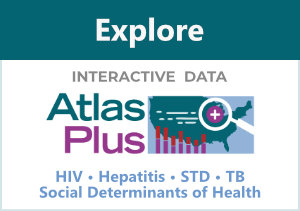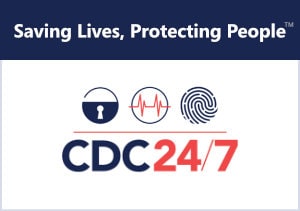Sexually Transmitted Diseases
Sexually Transmitted Diseases (STDs) have been rising among gay and bisexual men, with increases in syphilis being seen across the country. In 2014, gay, bisexual, and other men who have sex with men accounted for 83% of primary and secondary syphilis cases where sex of sex partner was known in the United States. Gay, bisexual, and other men who have sex with men often get other STDs, including chlamydia and gonorrhea infections. HPV (Human papillomavirus), the most common STD in the United States, is also a concern for gay, bisexual, and other men who have sex with men. Some types of HPV can cause genital and anal warts and some can lead to the development of anal and oral cancers. Gay, bisexual, and other men who have sex with men are 17 times more likely to get anal cancer than heterosexual men. Men who are HIV-positive are even more likely than those who do not have HIV to get anal cancer.
How are STDs spread?
- STDs are spread through sexual contact (without a condom) with someone who has an STD. Sexual contact includes oral, anal, and vaginal sex, as well as genital skin-to-skin contact. While condoms are effective, HPV and HSV can be spread by contact with the area around the genitals not protected by the condom.
- Some STDs—like HIV, chlamydia and gonorrhea—are spread through body fluids, such as semen (cum). Other STDs, including HIV and Hepatitis B, are also spread through blood. Genital herpes, syphilis, and HPV are most often spread through genital skin-to-skin contact.
What are the signs and symptoms of STDs?
- Most STDs have no signs or symptoms, so you (or your partner) could be infected and not know it.
- The only way to know your STD status is to get tested (Search for a clinic near you).
- Having an STD such as herpes makes it easier to get HIV.
When should I be tested?
All sexually active gay, bisexual, and other men who have sex with men should be tested regularly for STDs. The only way to know your STD status is to get tested (you can search for a testing site). Having an STD (like gonorrhea) makes it easier to get HIV or give it to others, so it’s important that you get tested to protect your health and the health of your partner. CDC recommends sexually active gay and bisexual men test for
- HIV (at least once a year);
- Syphilis;
- Hepatitis B;
- Hepatitis C if you were born between 1945 to 1965 or with risk behaviors (see “how is hepatitis C spread“);
- Chlamydia and gonorrhea of the rectum if you’ve had receptive anal sex or been a “bottom” in the past year;
- Chlamydia and gonorrhea of the penis (urethra) if you have had insertive anal sex (been on the “top”) or received oral sex in the past year; and
- Gonorrhea of the throat if you’ve given oral sex (your mouth on your partner’s penis, vagina, or anus) in the past year.
Sometimes your doctor or health care provider may suggest a herpes blood test. If you have more than one partner or have had casual sex with people you don’t know, you should be screened more often for STDs and may benefit from getting tested for HIV more often (for example, every 3 to 6 months). Your doctor can offer you the best care if you discuss your sexual history openly. Talk with your doctor about getting vaccinations for Hepatitis A and B, and HPV.
You should have a doctor or provider you are comfortable with. CDC’s Lesbian, Gay, Bisexual and Transgender Health Services page has resources that can help you find health services that are skilled in working with gay and bisexual men. Also, HIV Treatment Works resources have information about how to get in care and stay on treatment, as well as resources on how to live well.
- CDC’s STD Web Site
- STD MMWRs
- Gay Men & STDs Fact Sheet
- Syphilis Resources
- HPV Resources
- CDC Fact Sheet: HPV and Men
- Cancer Facts for Gay and Bisexual Men (American Cancer Society)
To get the maximum protection from using condoms, a new condom must be used correctly each time you have sex.
Condoms work well to protect against the spread of STDs and HIV. If they don’t work, it’s usually because were not used correctly. Read more about how to use a condom consistently and correctly.
How can I prevent STDs?
For anyone, being sexually active means you are at risk for STDs. However, you can do many things to protect your health. You can learn about how STDs are spread and how you can lower your chances of getting them.
Get Vaccinated: Gay, bisexual, and other men who have sex with men have a greater chance of getting Hepatitis A, Hepatitis B, and HPV. For this reason, CDC recommends that you be vaccinated against Hepatitis A and Hepatitis B. The HPV vaccine is also recommended for men up to age 26.
Be Safer: Getting tested regularly and getting vaccinated are both important, but there are other things you can do to reduce your risk for STDs.
- Talk honestly with your partner about STDs and getting tested—before you have sex.
- Use condoms correctly every time you have sex.
- Think twice about mixing alcohol and/or drugs with sex. They can lower your ability to make good decisions and can lead to risky behavior—like having sex without a condom.
- Limit your number of sexual partners. You can lower your chances of getting STDs if you only have sex with one person who only has sex with you.
Know Your Status: If you know your STD status, you can take steps to protect yourself and your partners.
Can STDs Be Treated?
Some STDs (like gonorrhea, chlamydia and syphilis) can be cured with medication. If you are ever treated for an STD, be sure to finish all of your medicine, even if you feel better. Your partner should be tested and treated, too. It is important to remember that you can get the same or a new STD every time you have unprotected sex (not using a condom) and/or have sex with someone who has an STD.
Other STDs like herpes and HIV cannot be cured, but you can take medicines to manage symptoms.



